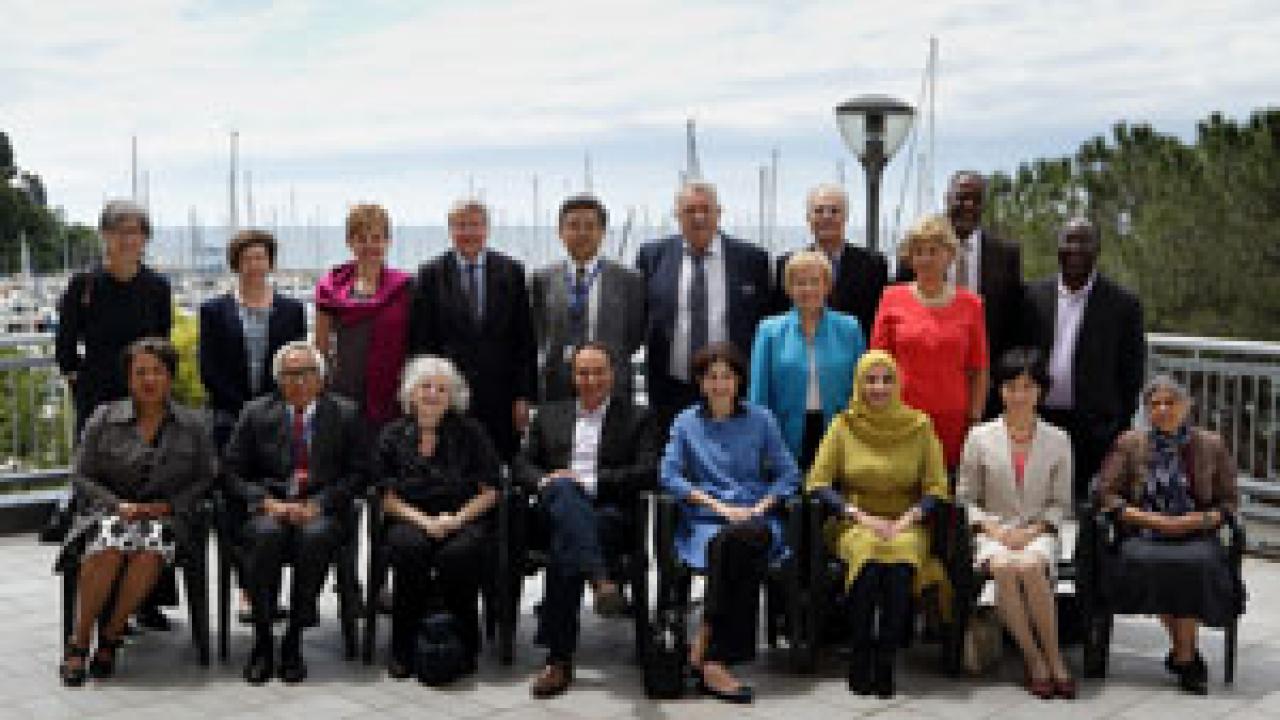
Planet Earth and its inhabitants currently face huge challenges, from rapid human-induced climate change, to worsening inequality, to the degradation of the world's oceans. Science has much to offer in creating effective and inclusive policies to address these problems, and deserves more systematic integration into decision making, says the United Nations Scientific Advisory Board in its final report, released 18 September 2016.
Convened by UN Secretary-General Ban Ki-moon, the Board consists of 26 eminent scientists who have periodically gathered over the last several years to formulate policy advice for the UN regarding science and technology. ICTP hosted their final meeting, in May 2016. The final report covers many aspects, philosophical and concrete, of the recommendations the Board has for the UN, scientists, policy makers, and political leaders throughout the world.
"In many quarters science is still not fully embraced as a prerequisite to effective policy making," reads the report. "Science deserves to be valued more highly by decision makers at all levels," says the accompanying press release. "But it requires more resources to become the game-changer it could be in dealing with global challenges."
Only 12 countries allocate more than 2.5% of their GDP to research and development, and the report warns that this is far from enough if the current world's challenges are to be addressed. Existing and potential scientific discoveries can contribute to addressing climate change and plummeting biodiversity, alleviating poverty and inequalities, and enhancing health and well-being.
In order to do this, the Board writes that science deserves more support and recommends all countries spend at least 1% of their GDP on research, including basic research, with wealthier countries pushed to spend more than 3%. Public understanding of science should be strongly advocated in every country, setting the stage for populations to call for evidence-based policies.
The Board also stresses the need for a much better working relationship between scientists and policy makers, and the need to use science effectively in understanding problems, formulating policies, and ensuring that these policies are implemented effectively. "Decision makers who would benefit from scientific knowledge should make science an integral part of their design from the start," the final report states.
Another of the Board's recommendations stresses the need to reduce inequalities of access, income, and opportunity. Situated in the scientific world, this is exactly ICTP's mission: to foster and support growth in physics and mathematics research in the developing world, welcoming talented minds into the global scientific community and helping promote science and build capacity in their home countries.
As world leaders, both global and local, attempt to address these issues, science needs to play a crucial role, says the Board. Beyond supporting both basic and applied science, and integrating science and data systematically into their decision making from the start, governments could also benefit from the evidence-based thinking that science promotes. "When tensions arise among nations, their leaders can respond far better if they understand and agree upon the scientific evidence for the root causes of those tensions," says the Board.
A summary of the Board’s final report, titled “The Future of Scientific Advice to the United Nations”, is available here.
Interviews with several UNSAB members, as well as a summary of the meeting highlights, are available on ICTP’s YouTube channel:
- Abdallah Daar: The effects of climate change on public health
- Gebisa Ejeta: Evidence-based policy for food systems
- Joji Cariño: The value of indigenous knowledge in science and policy
- Rosie Cooney: Holistic policy for biodiversity conservation
- Highlights of the 5th Meeting, Scientific Advisory Board of the UN Secretary-General
-----Kelsey Calhoun
















